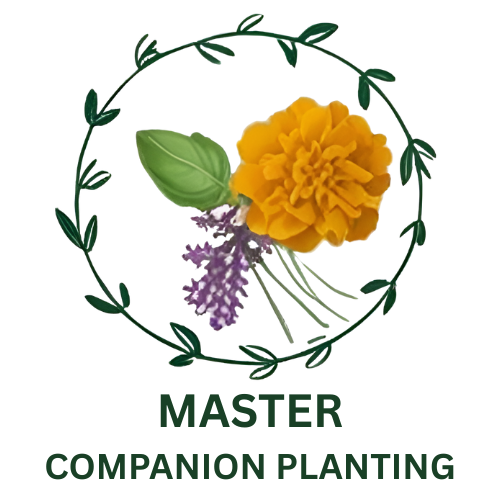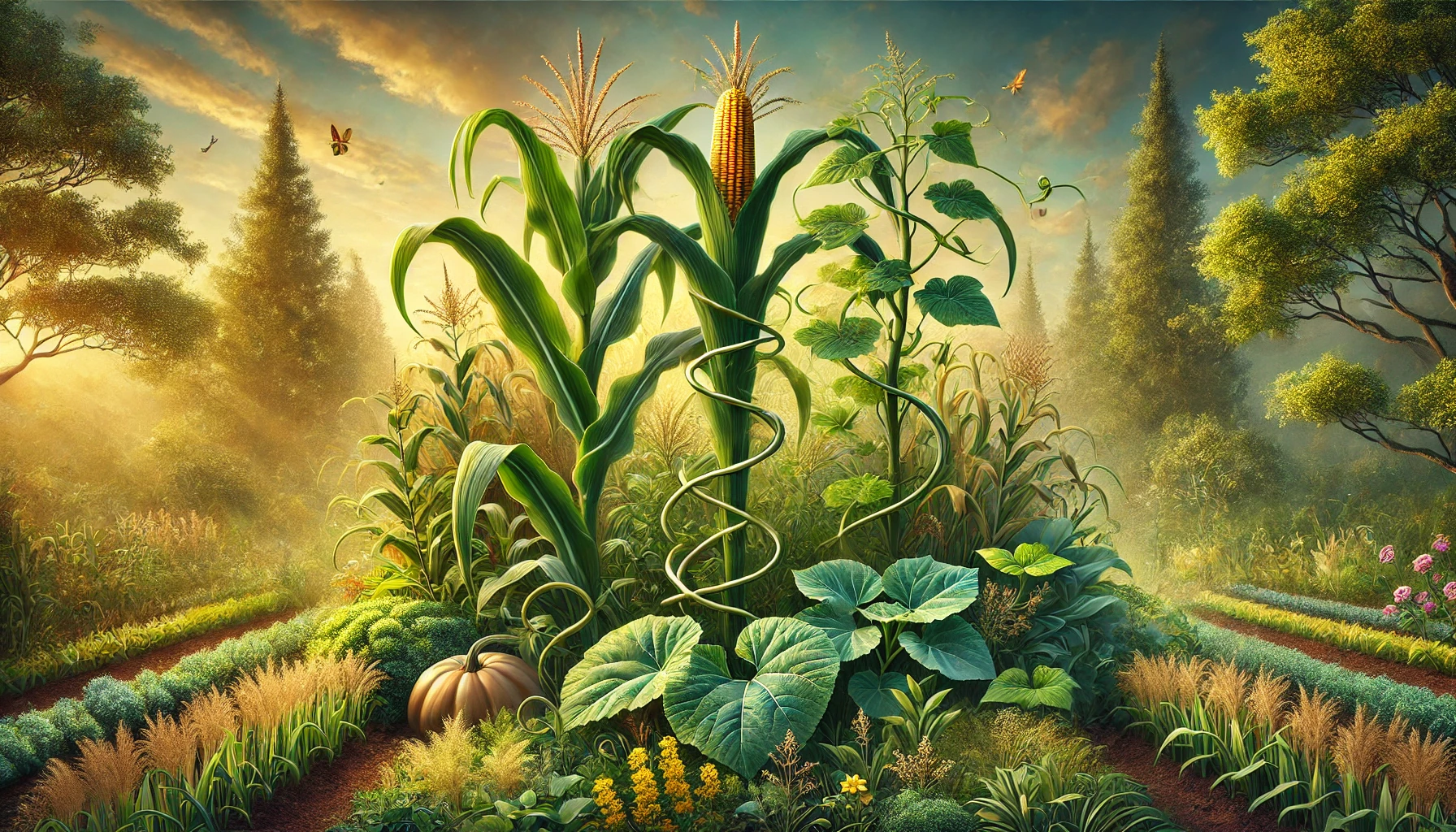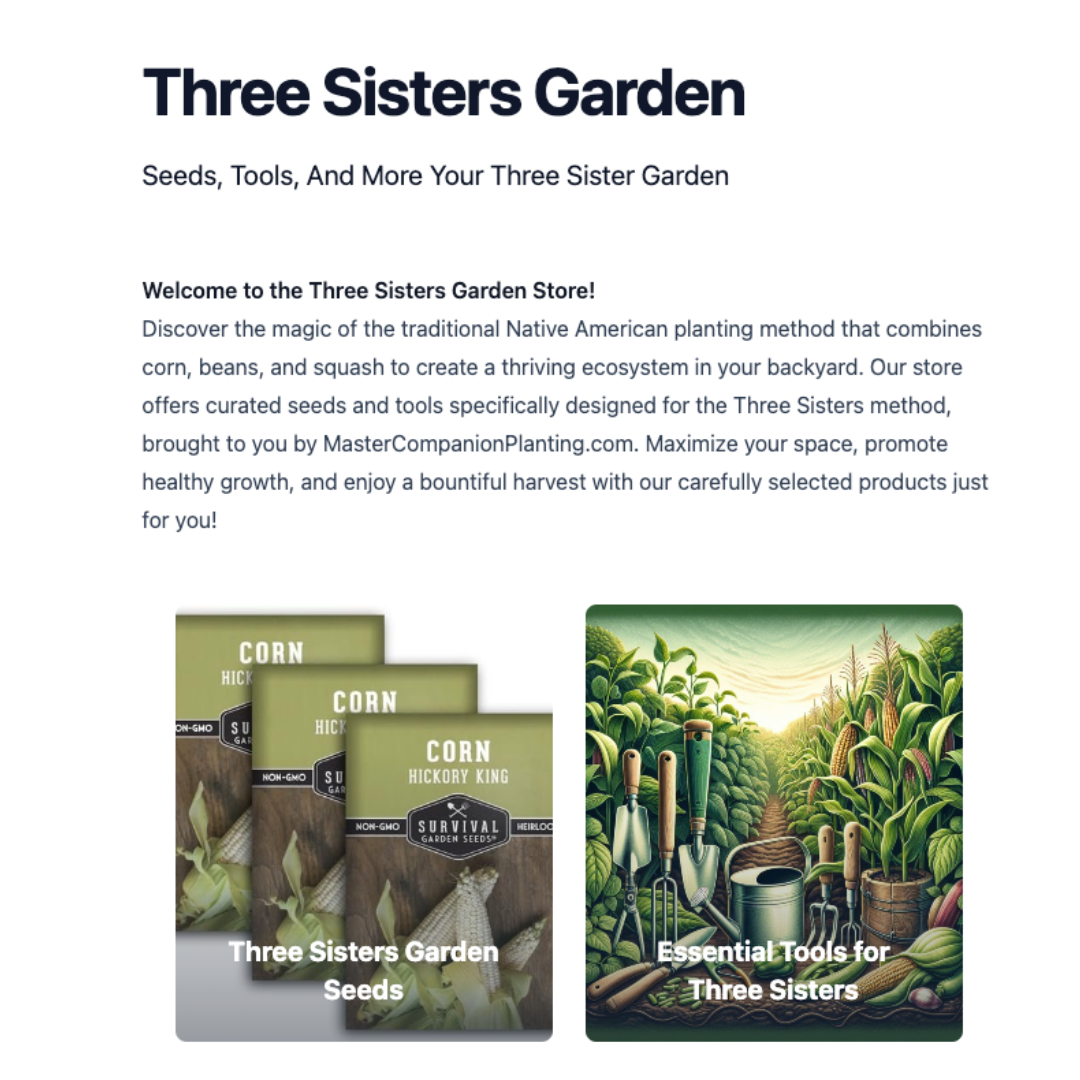Companion Planting the Three Sisters Garden
Introduction
Companion planting is nature’s way of creating balance and efficiency in the garden. Among its most celebrated techniques is the Three Sisters method—a traditional Native American planting strategy where corn, beans, and squash grow together in mutual support. This guide will walk you through creating your very own Three Sisters garden, blending tradition with practical steps for sustainable gardening.
Step 1: Embrace the Sacred Trio
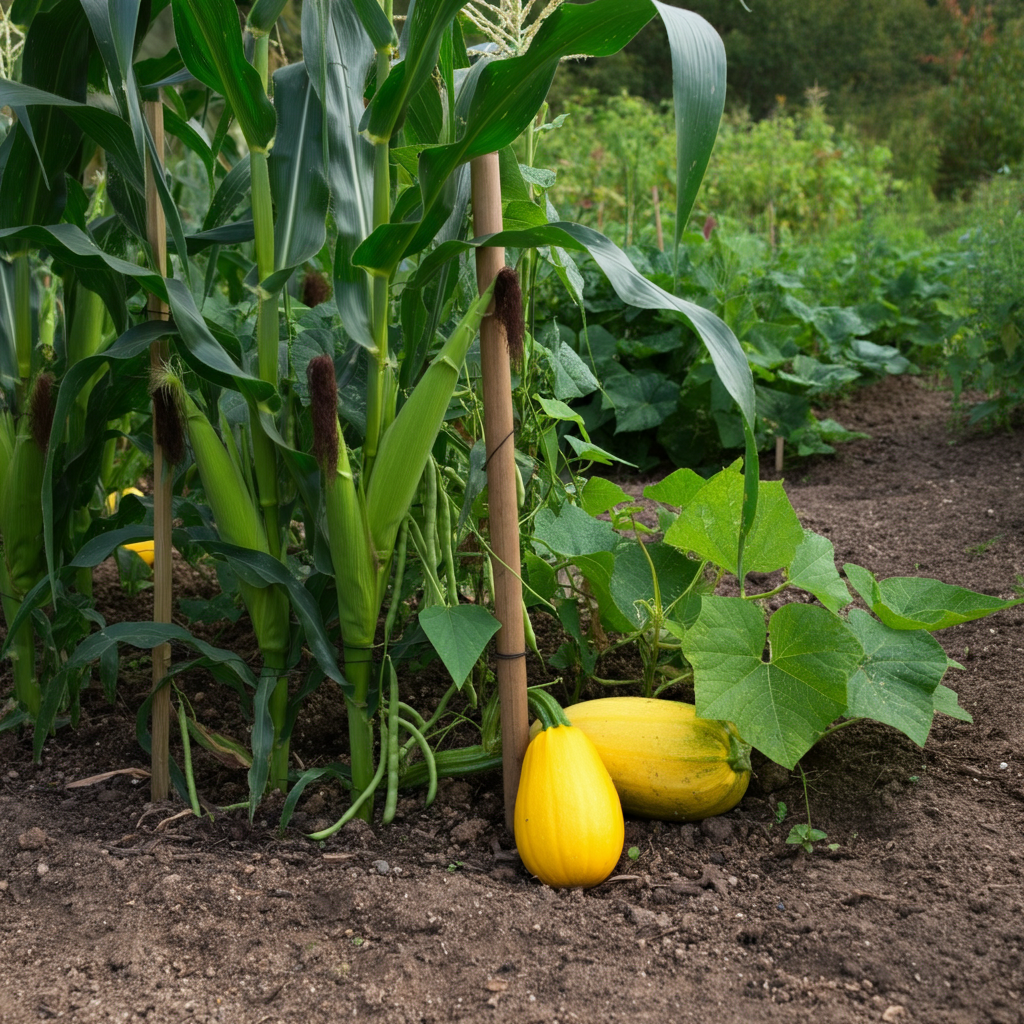
The Three Sisters—corn, beans, and squash—each play a vital role in this harmonious system:
- Corn: Stands tall to provide a natural trellis for beans.
- Beans: Enrich the soil by fixing nitrogen and climbing the corn for support.
- Squash: Spreads its broad leaves to shade the soil, retaining moisture and deterring weeds.
Step 2: Prepare the Soil
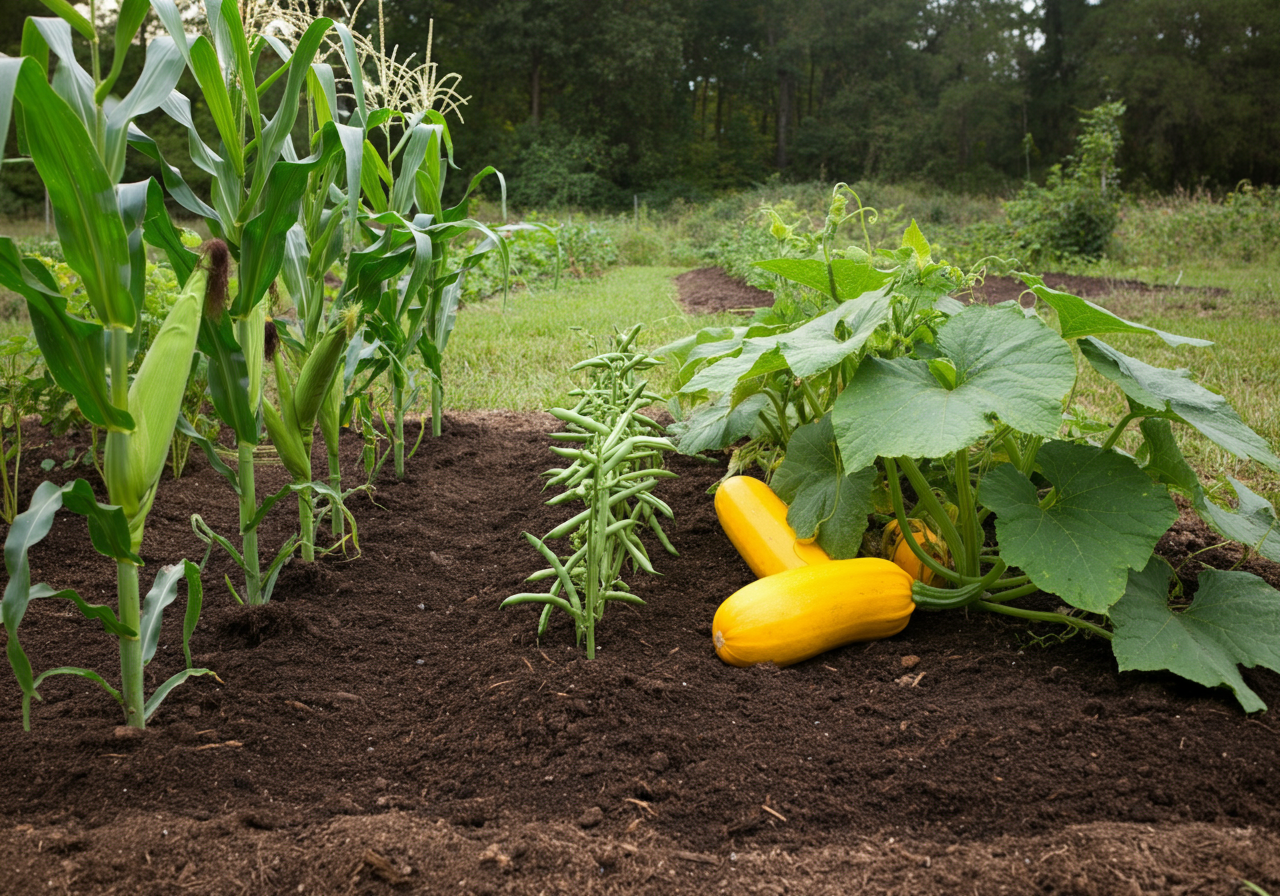
Healthy soil is the foundation of any successful garden:
- Choose a sunny location with well-draining soil.
- Enrich the soil with organic compost to provide essential nutrients.
- Form small mounds or raised beds to aid drainage and warmth.
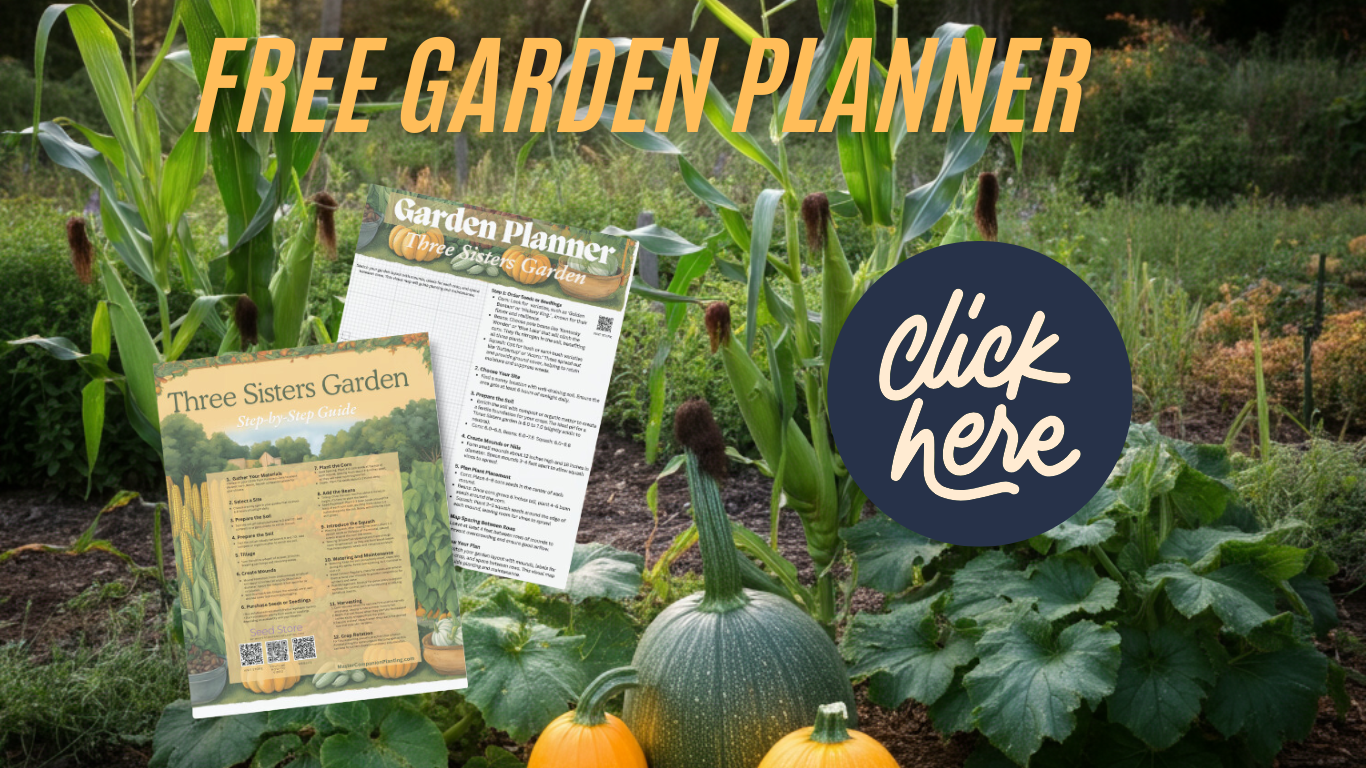
Step 3: Plant in Sequence

Timing and placement are key for harmony:
- Corn: Plant seeds in the center of each mound, spacing them 6-8 inches apart.
- Beans: Once corn reaches 6 inches tall, sow bean seeds around the corn. These will climb the stalks naturally.
- Squash: Add squash seeds around the base of the mound. Allow ample space for vines to spread.
Step 4: Nurture the Growth
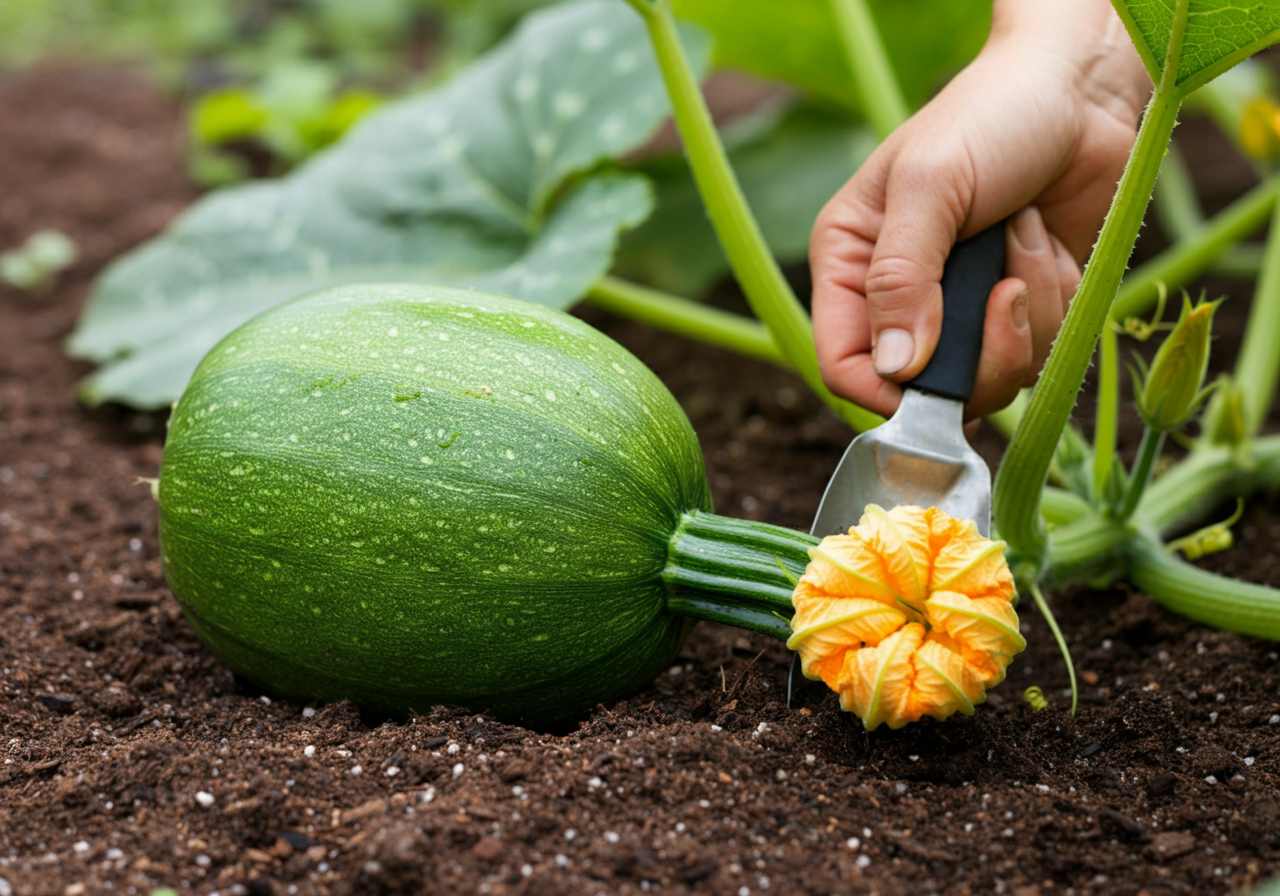
It Takes A Gardener...
- Watering: Keep the soil consistently moist but avoid water-logging.
- Weeding: Remove weeds early to minimize competition.
- Pest Control: Use organic solutions, and rely on squash’s natural pest deterrence.
Step 5: Celebrate the Harvest
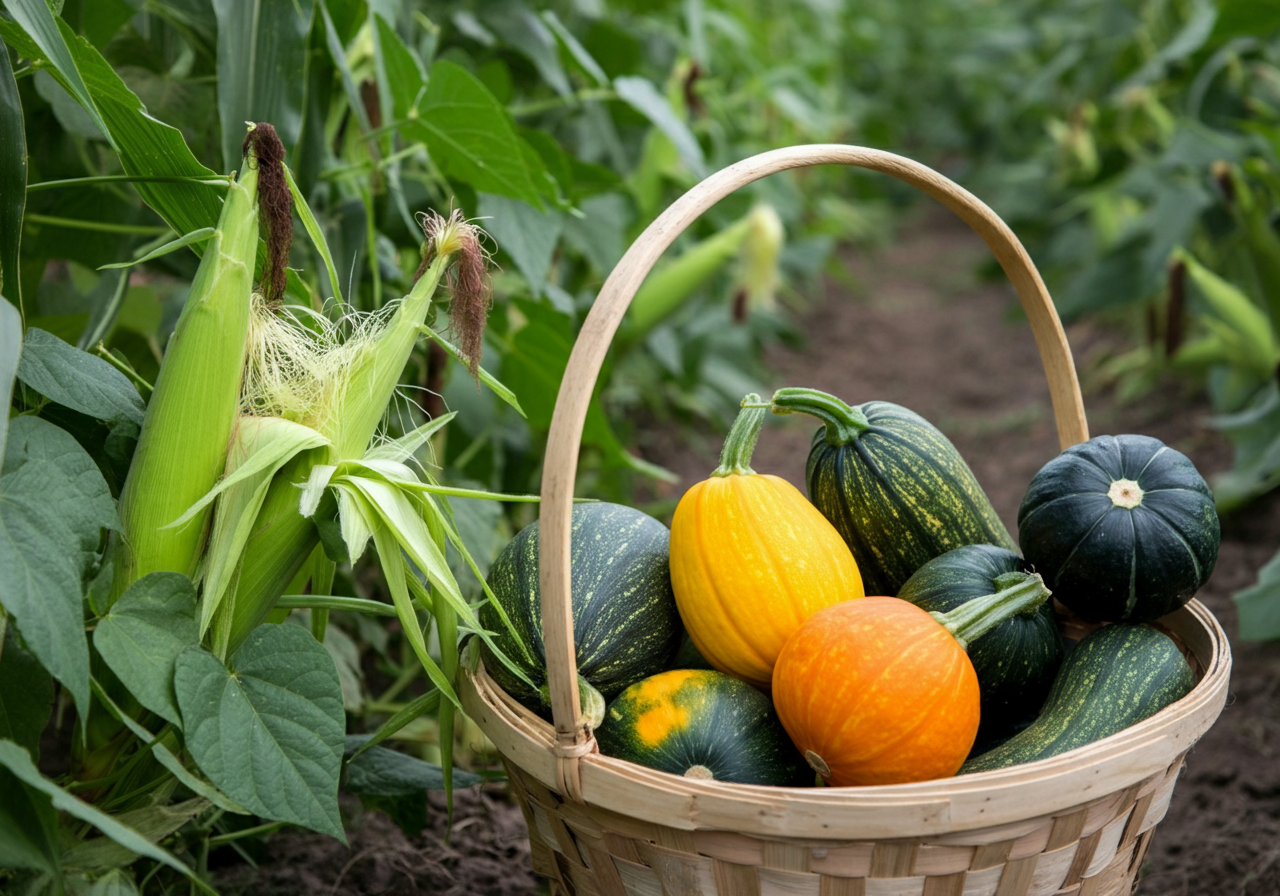
It Takes A Gardener...
- Harvest beans regularly to encourage new growth.
- Pick corn when the ears are full and kernels are milky.
- Gather squash once it’s mature, typically in late summer to early fall.
Benefits of the Three Sisters Method
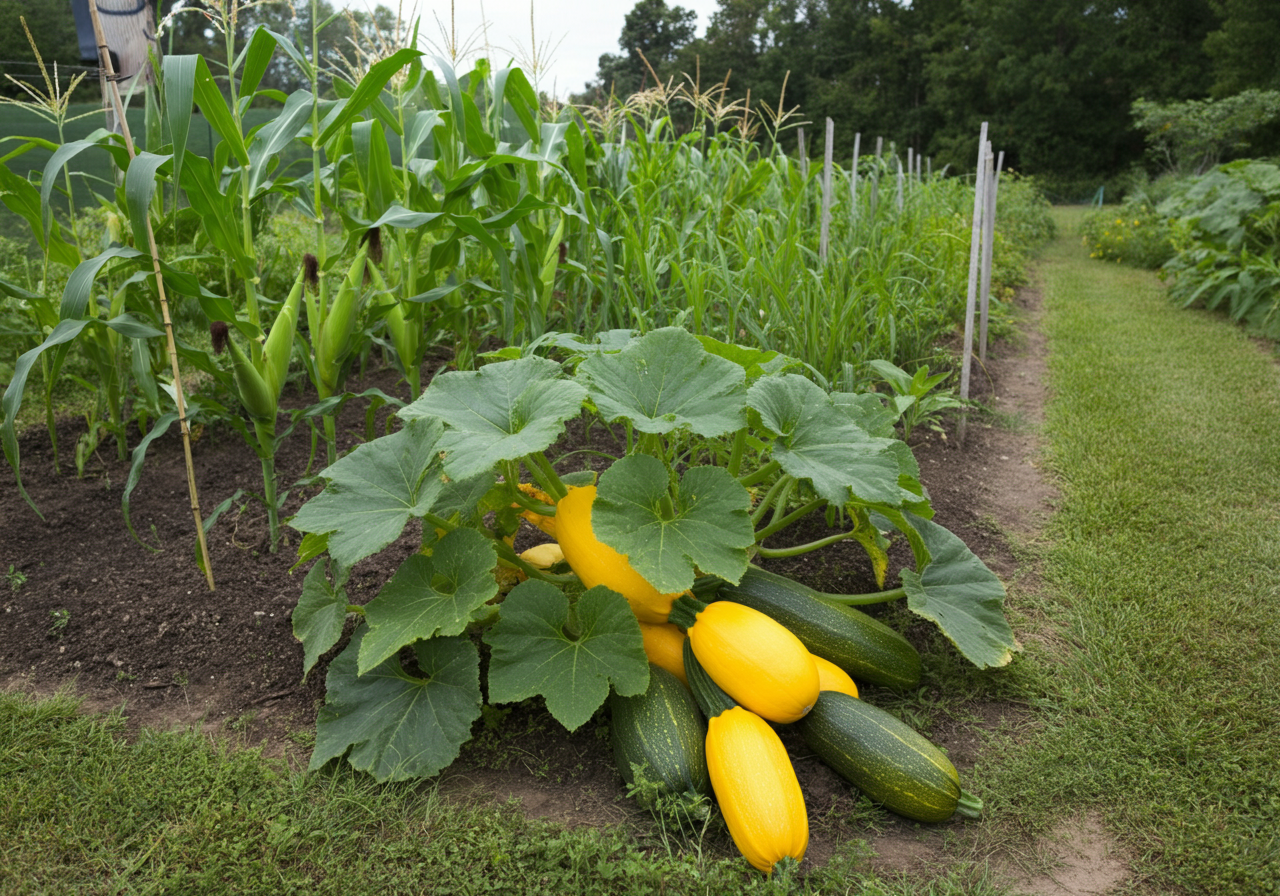
Companion Planting Provides
- Space Efficiency: Maximizes yield in a compact area.
- Natural Pest Control: Reduces the need for chemical interventions.
- Nutrient Recycling: Beans replenish nitrogen used by corn and squash.
- Soil Protection: Squash provides a living mulch, enhancing moisture retention and soil health.
For more tips and guides on companion gardening, join our Private Facebook Group! You can find us on Facebook at @mastercompanionplanting or visit our store, Roots, where we offer curated supplies for floral and vegetable companion planting. Get everything you need to get started today!
Join Our Private Facebook Group for Free Companion Planting Garden Planners, Tips, Discussions, and more @masteringcompanionplanting
